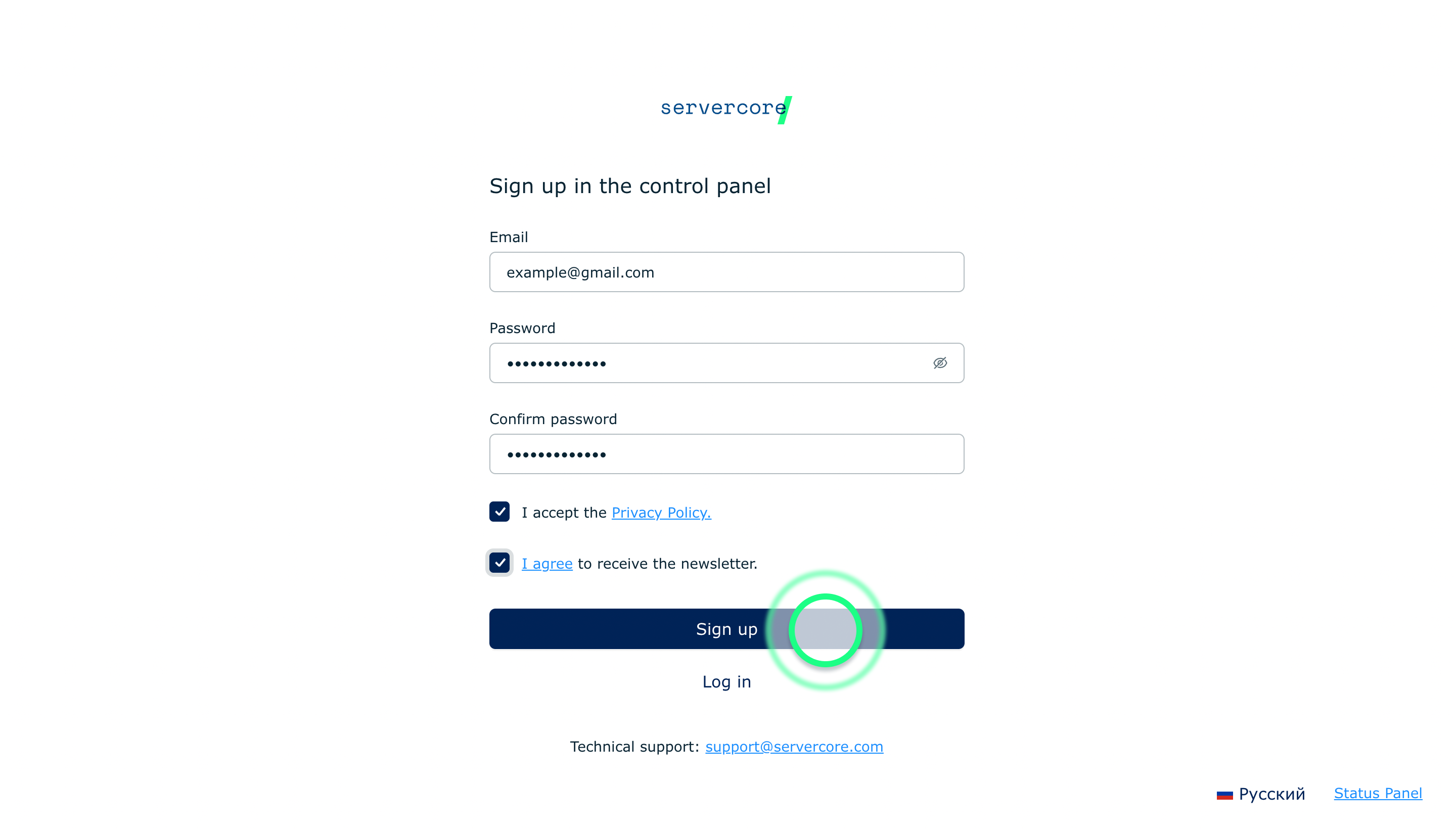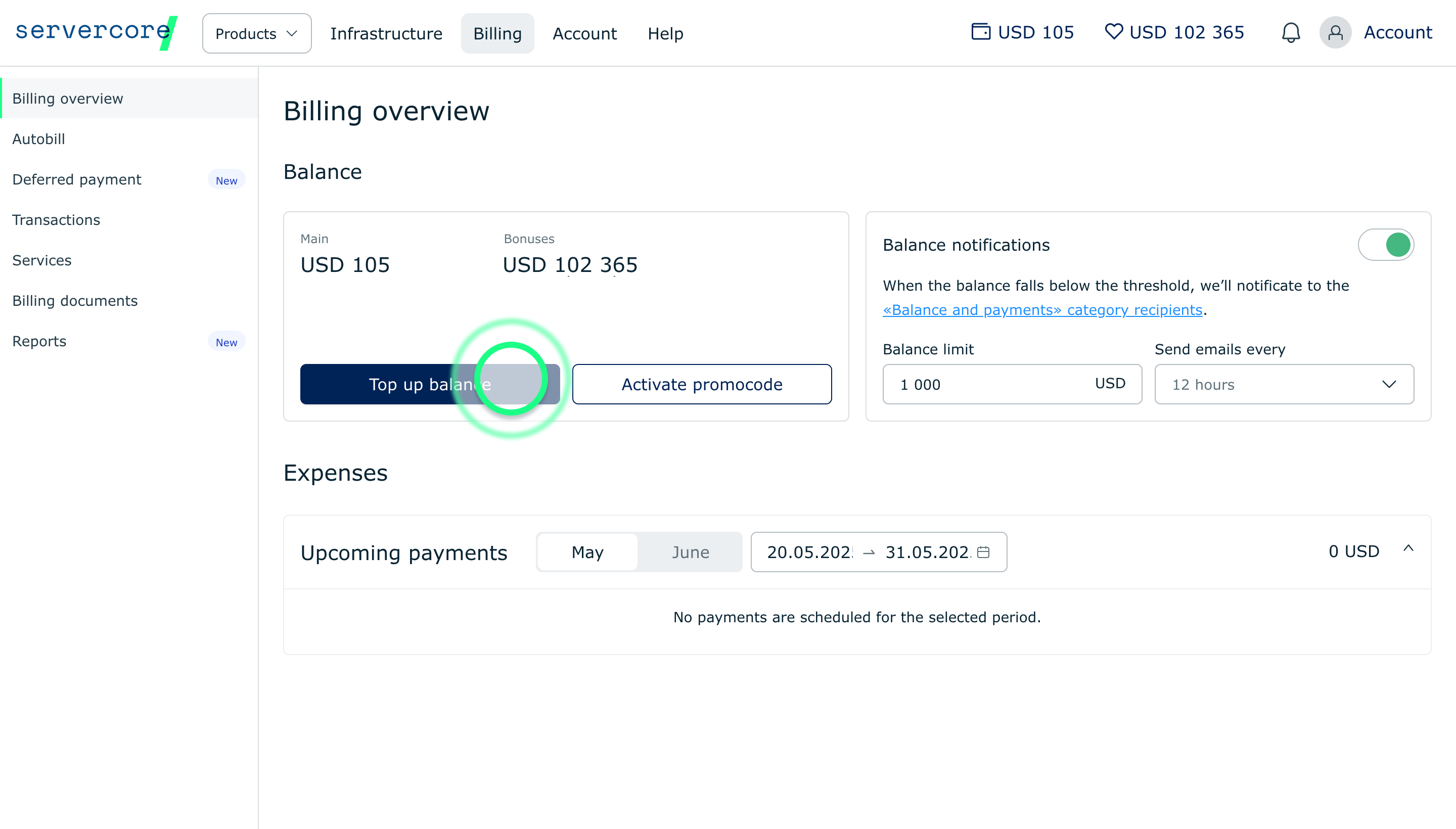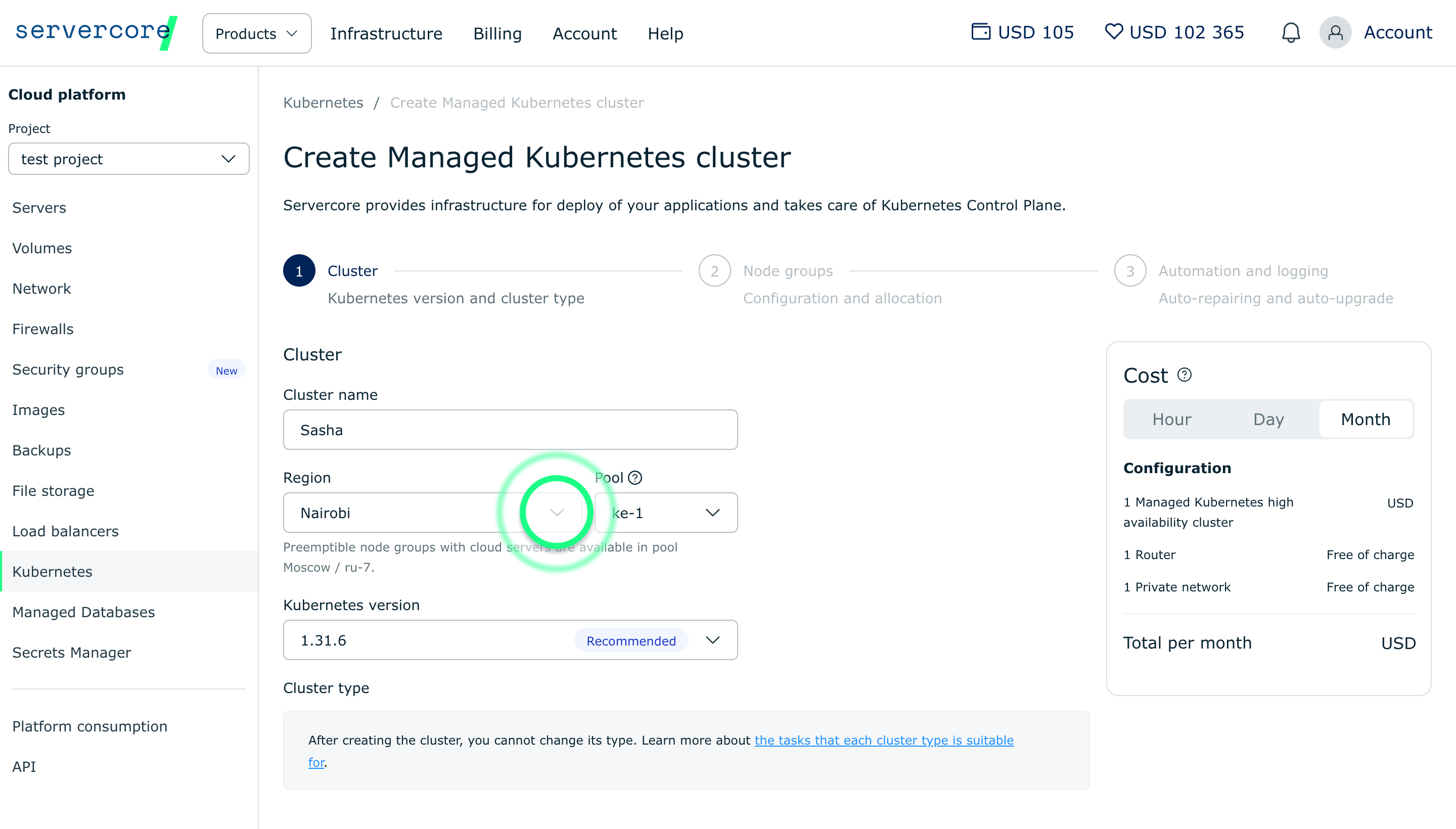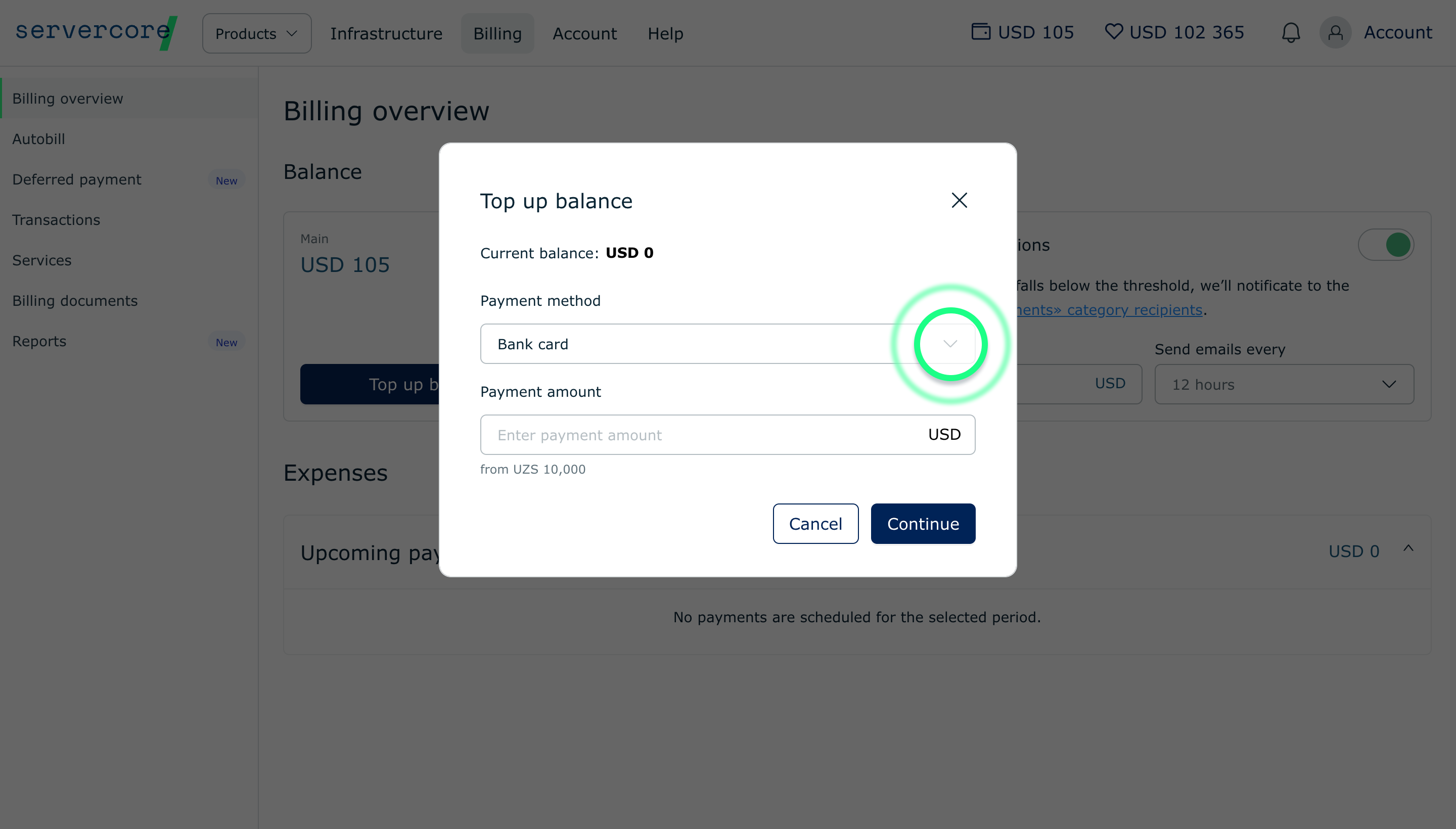Popular
Computing
Data Storage and Processing
Network Services
Security
Machine Learning and Artificial Intelligence
Cloud Servers
Flexible virtual machines
Dedicated Servers
Strong physical resources
Cloud Databases
Scalable data storage
Object Storage
New
Unlimited data and multimedia storage
Cloud Backup Solutions
Automatic backup of network drives
Managed Kubernetes
Automation and container management for efficient development
Cloud Servers
Flexibility and scalability for any task
GPU Cloud Servers
High-performance computing for AI and ML
Dedicated Servers
Complete resource and performance control
Dedicated GPU Servers
Powerful computing for resource-intensive applications and data analysis
Managed Kubernetes
Automation and container management for efficient development
VMware Cloud
Enterprise virtualization solution
Cloud Databases
For all data types available in Servercore
PostgreSQL
Relational database for complex queries and analytics
MySQL
Fast database for web applications and data storage
Redis
Caching and session management for high-performance applications
Kafka
Real-time data processing for streaming applications
TimescaleDB
Time series storage and analysis for monitoring and IoT
Object Storage
New
Unlimited data and multimedia storage
File Storage
User-friendly file management and sharing
Cloud Backup Solutions
Automatic backup of network drives
Поиск...
Administration
By industry
About the Company
Case Studies
For Customers
Legal Information
For customer inquiries
PR Department
Technical Support
Kenya
Case studies from Kenya
Kazakhstan
Case studies from Kazakhstan
Uzbekistan
Uzum Nasiya
Fintech
Seamless Migration and Custom Cloud Solution Tailored to Business Objectives
Alif Tech
Fintech
How to Reduce Service Downtime by 80%
Bosch
Retail
How Bosch Accelerated Customer Engagement Fivefold and Automated Cloud-Based Business Processes
Popular
Computing
Data Storage and Processing
Network Services
Security
Machine Learning and Artificial Intelligence
Administration
By industry
About the Company
For customer inquiries
hello@servercore.com
PR Department
pr@servercore.com
Technical Support
support@servercore.com
Case Studies







